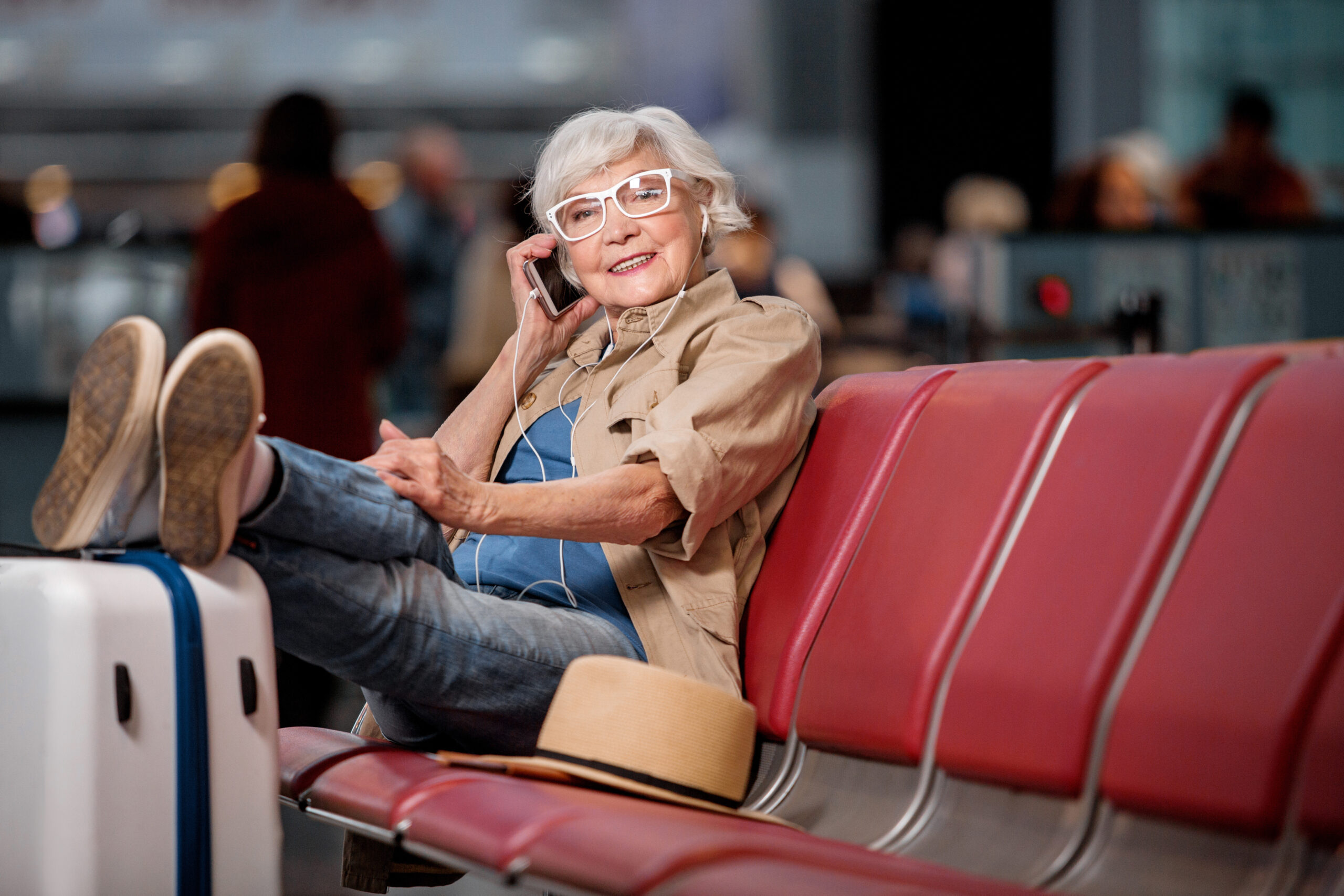
Summer is here, and many are looking forward to a long-awaited vacation. There’s a lot to think about when preparing to travel, and vein health probably isn’t a priority. However, taking some easy steps to support your health can help insure that you feel good enough to have all the fun you’ve been planning on. We’ve compiled some smart travel tips that will help keep you on your feet and on the go.
Drinking enough water is essential for staying healthy, but this is especially important when we’re more active or the weather is hot. Hydration is important for vein health because it helps maintain the blood’s fluidity, facilitating circulation and reducing swelling. On planes, opt for water when the flight attendants are taking beverage orders. You can also carry a reusable bottle filled with water so that hydration is always near at hand.
As a complement to drinking enough water, wearing non-restrictive clothing can also help maintain healthy circulation. If you are one of the many people who experience leg discomfort while traveling, you can wear compression stockings under loose-fitting pants. Wearing stockings provides additional support for healthy veins and for veins that have damaged valves. For most people, we recommend knee-high compression stockings rated 20-30 mmHg. If you would like to try a lighter compression, go for 15-20 mmHg. Another clothing tip is to leave those high heels at home! Elevating the heels reduces venous return to the heart and increases pressure on the veins.
When traveling by car or by plane, movement can be pretty constrained. Fortunately, there are some simple ways to improve circulation en route. If you’re traveling by car, stop every couple hours to stretch your legs, do calf exercises, or take a short walk at a scenic viewpoint, historical marker, or nice rest stop. Flying can be challenging for people with vein issues due to the narrow seats, prolonged sitting, and limited legroom. No matter how long your flight is, try walking up and down the aisle every hour or so when it’s permissible to move around the cabin. Even with the seat belt sign-on, you can still increase circulation! Keep your blood circulating by flexing your ankles, wiggling your toes, and massaging your calves. Any movement is better than none, and these mini-exercises help prevent blood from pooling in your legs. Foot pumping, an exercise where you pull your toes toward your knees, and then press your toes into the floor to elevate your heels, is particularly effective in keeping the blood moving.

Traveling can be stressful, so relax for a bit when you reach your destination. Elevate your legs above your heart for at least 20 minutes to give them a break. If you’re feeling energized, take a brisk 30-minute walk and stretch your legs. Make sure to take advantage of any exercise equipment offered at your hotel. Cycling for 30 minutes is a great choice, but avoid exercises that increase venous pressure like lunges, crunches, or sit-ups. Pack a swimsuit if you know there will be a pool at your hotel – swimming and walking are great exercises that support vein health.
It’s okay to indulge a bit on vacation, or during summer barbeques, but be aware that salty foods can negatively affect vein health and contribute to swelling. Processed foods are typically the biggest high-sodium culprits, so try limiting your consumption of these and opt instead for lean meats, vegetables, fruits, whole grains, and legumes. Balancing indulgent foods with a healthy diet will not only support your veins but will also help ensure that you feel your best during all your summer activities. Try packing some healthy snacks, or even a meal, in your carry-on bag so that you’re not stuck with the limited options at airports or fast food restaurants.
Perhaps this goes without saying, but don’t forget that sunscreen! Use sunscreen rated at least SPF 50 in a place like Colorado, where high altitude is a concern, or if you’re traveling nearer the equator where the sun is especially intense. Otherwise, apply at least SPF 30. Being smart about suncare can help protect your skin from aging prematurely. We often think only about the sun’s effects on the face, but it’s important to consider the rest of the body as well.
These tips can help your veins, and you, stay in good shape while traveling, and we hope you find them useful. Remember that it’s normal to feel some type of leg pain occasionally and that this doesn’t necessarily indicate that there is an underlying problem. However, if you’ve been experiencing consistent discomfort in your lower legs, this could be a sign of venous disease. This condition sneaks up on people slowly and can happen to anyone. The early signs are frequent fatigue, swelling, pain, or feelings of “fullness” or “heaviness” in the lower legs. It can be easy to ignore these symptoms, but venous disease is progressive, and eventually, you may have visible signs like varicose or spider veins, or other complications. If these discomforts sound familiar, call us to discuss your symptoms over the phone. We can recommend if it’s a good idea to make an appointment to come by for a more thorough examination. All of us at Artemis wish you a fun, healthy summer!